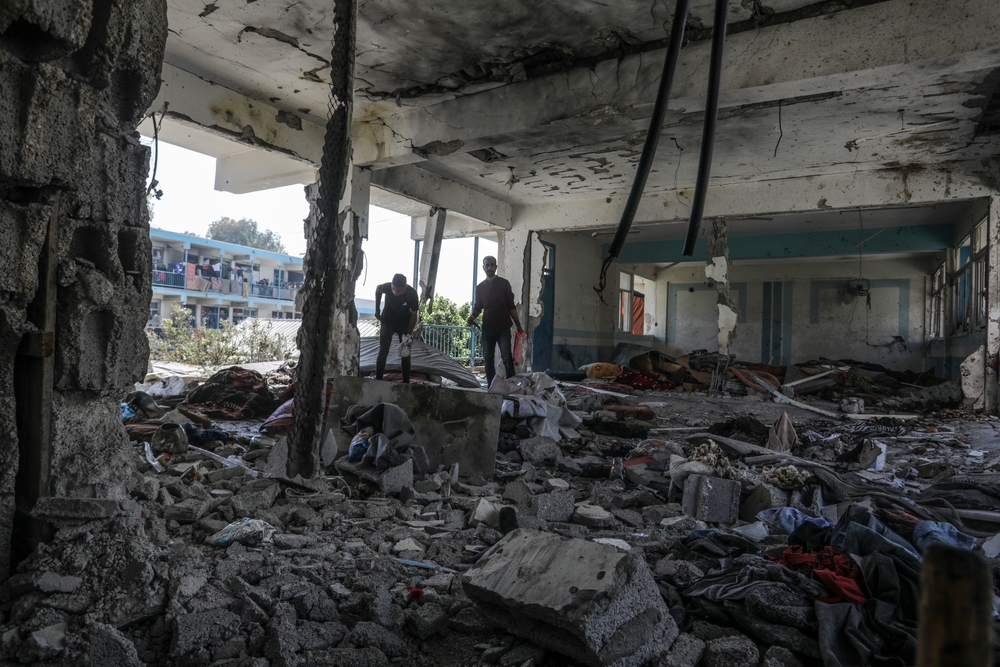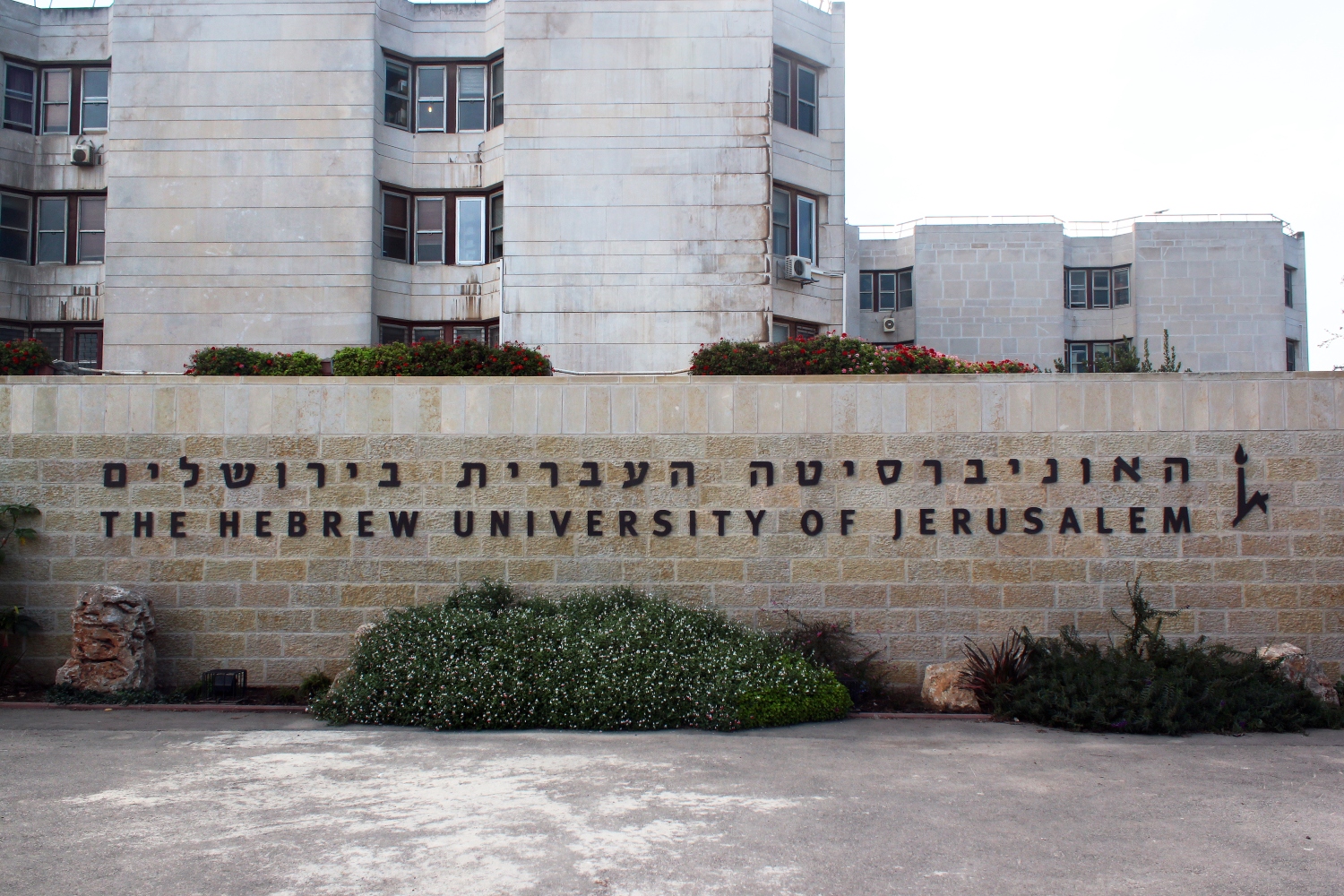The much-discussed Principles of Collaboration – are they, or are they not, a basis for cutting ties with Israeli universities? – were the topic of last Thursday’s Lest’s Explore session. Frustration over the lack of clarity abounded. ‘WUR says to consult your colleagues or supervisor. This makes me very uncomfortable.’
‘Does WUR really categorically exclude the tobacco sector from partnerships?’ The Let’s Explore session had been going on for a while, and this issue suddenly popped up as part of a practical example discussed by someone from Corporate Strategy & Accounts. A substantial portion of the participants is alerted. Is this true? Mumbles are heard as the speaker confirms that the executive board has specifically excluded this sector from partnerships. ‘Oh, so the board can indeed take a stand against a particular collaboration!’ someone comments somewhat cynically.
Scepsis
This incident is typical for this Let’s Explore session, which is attended by an unusually small audience of only 24 persons. Not everyone is eager to enter into discussion, and some participants express doubt as to the status and nature of the meeting at the start. Will the session be limited to non-committal exchanges of views, or will WUR take their position into account? Although facilitator Inge Wallage is not able to completely neutralise the scepsis, the discussion develops after a tentative start.
WUR’s Principles of Collaboration form a good point of departure, but they do place considerable responsibility on the shoulders of individual employees, according to many. ‘When I read the document, I feel almost threatened. What are the consequences if I make the wrong decision?’ a researcher says. Someone else sets their mind at ease: ‘The document literally states that all parties -and not only the individual researcher- can be held accountable. However, this is not reflected in the complex ethical issue at hand (that of the ties with Israeli universities, ed.).’
Not an individual responsibility
Several examples in which the Principles work well are cited. For example, when a (homosexual) colleague was set to travel to an African country that is hostile against homosexuals for a research project. ‘Our gut feeling was clear: your safety comes first. But the Principles helped us substantiate that decision’, the manager involved says.
Still, the need for more steering is sorely felt. ‘We are not a random group of individuals. We are WUR. Thus, the fact that WUR allows individual assessments to weigh so heavily in deciding on partnerships is not desirable’, one member of the audience summarises. ‘On what do you base your decision? As an individual, you have only limited options to vet a potential partner. Such things should not be left to individuals.’
Greenwashing
Screening is also an issue during exchanges. To what degree are employees responsible for reaching agreements, and to what extent are they able to delve into the details of the partner university’s background? Another issue affecting researchers: ‘More often than not, you are happy to have found a partner with which you can collaborate. Turning them down often puts an end to the project and may even mean the end of your job, as many researchers work under a temporary contract. How critical can you expect people to be?’
A member of the audience points out that there are parties who take advantage of this fact by reaching out to multiple parties within WUR. And, before you know it, a less critical department within WUR is inadvertently made complicit in greenwashing.’
Humanitarian
The moral stakes are high in WUR’s partnerships. ‘I simply cannot understand why WUR still has partnerships with a university that has openly admitted to offering troops in Gaza logistical support. Human rights are violated there!’ says a participant. A colleague seconds them. ‘There is a humanitarian crisis in which WUR may indirectly be involved. The executive board has failed to share their substantive arguments. This makes me feel extremely uncomfortable. Constantly referring to the Principles, the executive board is, in fact, saying: consult your colleagues or supervisors for an ethical assessment of partnerships; don’t look to us. But I expect more from the board.’
No big turnout
The fact that only 24 people attended this Let’s Explore meeting is likely linked to the fact that it was announced only with a small post in the Wageningen Dialogues intranet group. The organisers agreed that this must be done better in the future. The fact that the ‘bridge protestors’ were absent is unrelated. ‘We knew about the meeting but decided against attending as the focus was not on the issue we wanted to focus on, the timing was bad, and we have no faith in the Let’s Explore format’, a spokesperson says.

 Photo Resource
Photo Resource 
![[The Proposition]‘Authentic speaking breaks through polarity’](https://www.resource-online.nl/app/uploads/2024/06/WEB_de-stelling.png)

Thanks to Resource for covering this meeting, which I was not able to attend. Thanks also to participants who spoke up about their unease with loading responsibilities for institutional engagement onto the shoulders of individuals. It seems clear there needs to be further reflection on what issues are suitably judged at the level of individual researchers or chair groups, and what pertains to a higher level.
I found the example mentioned about travel of a researcher to a homophobic country rather confusing in the context of the session announced as being about the principles of collaboration. First of all, the procedures meant to safeguard the safety and security of WUR staff and students when travelling abroad should not be confused with, were not designed for, and cannot be a substitute for maintaining ethical standards in research collaborations. Second, and ironically, I could add that as regards the travel permits, WUR does not leave it up to the individual and instead assigns itself a role to check on and, occasionally, override the individual ‘s risk assessment- if needs be (for “red areas”) up to the corporate level. It is evident that WUR’s position on travel safety is contradicting the standpoint defended around the principles of collaboration.